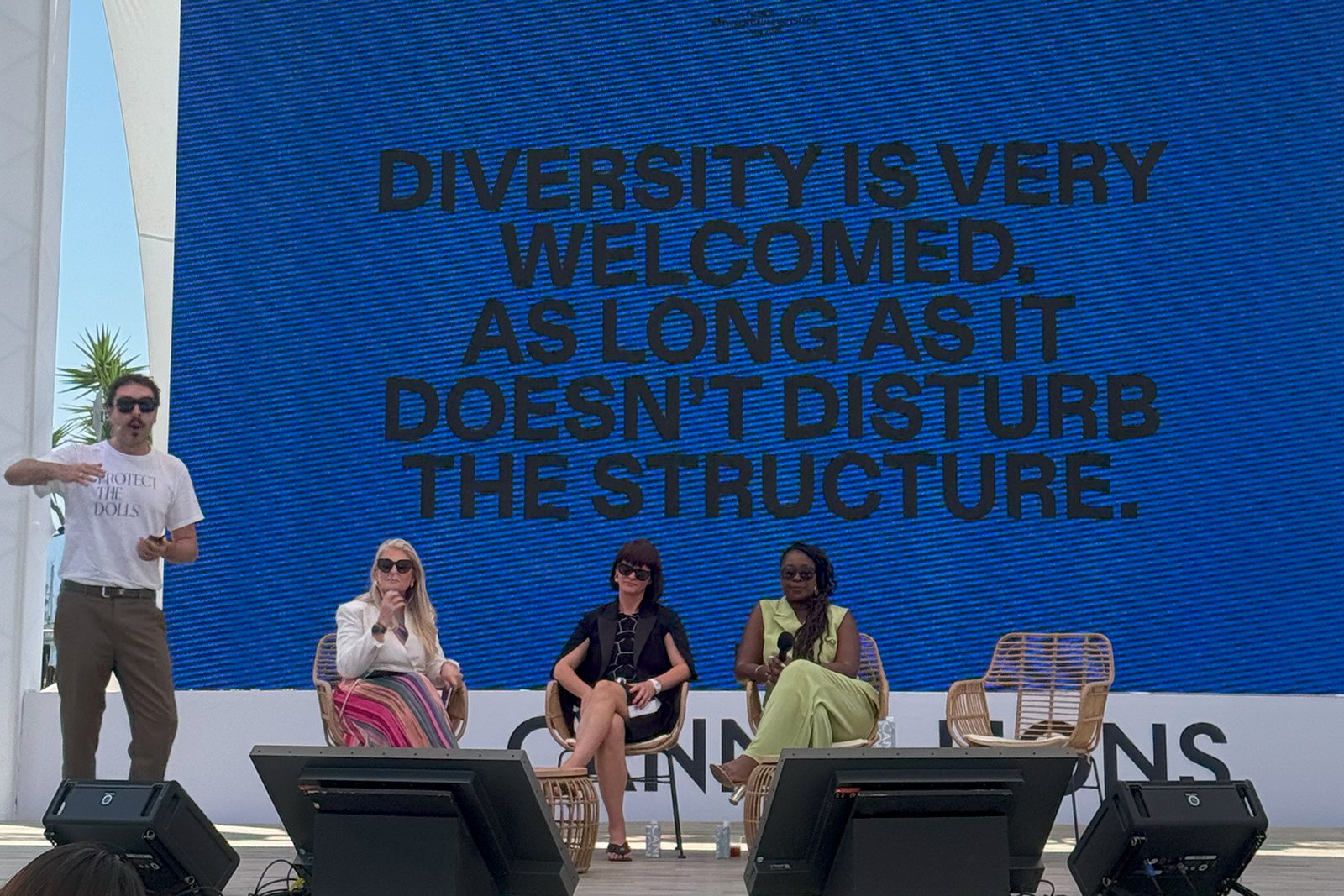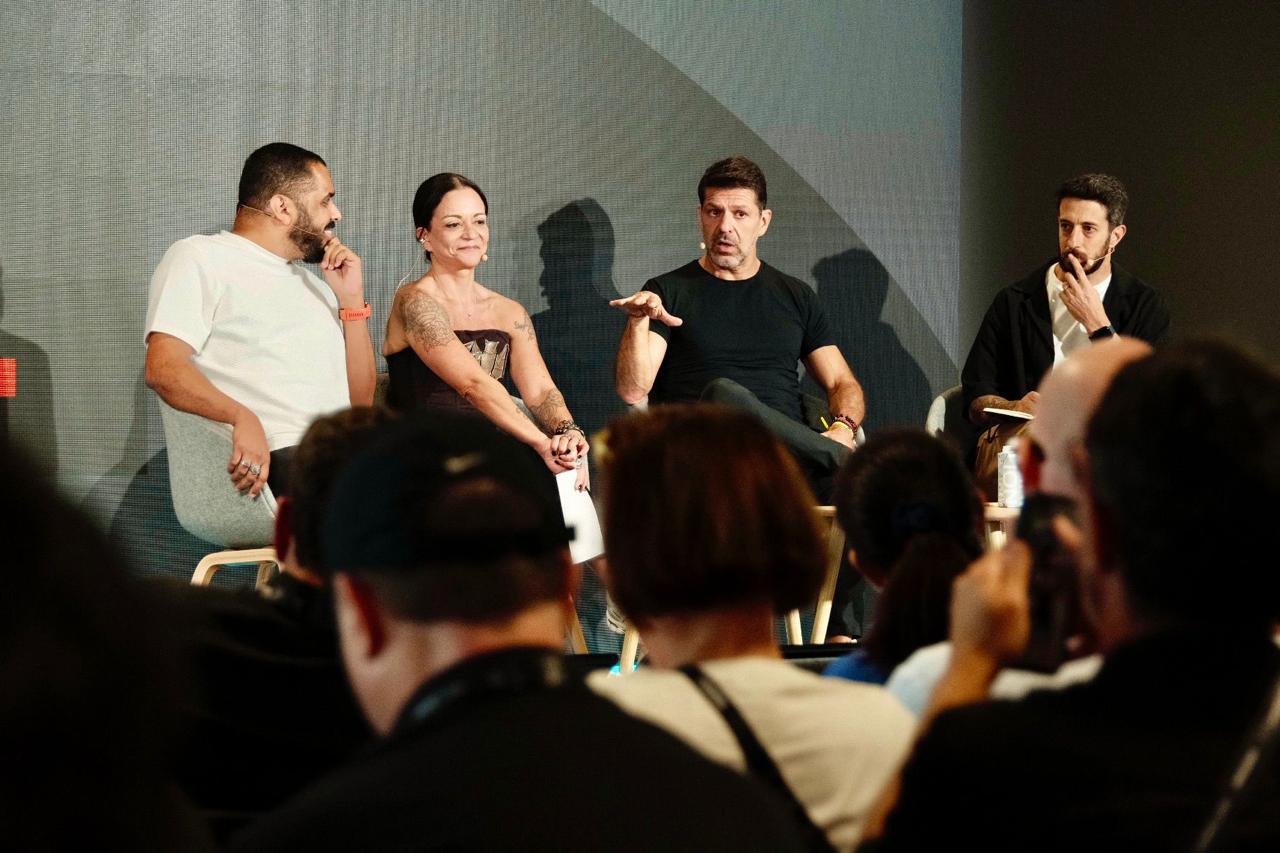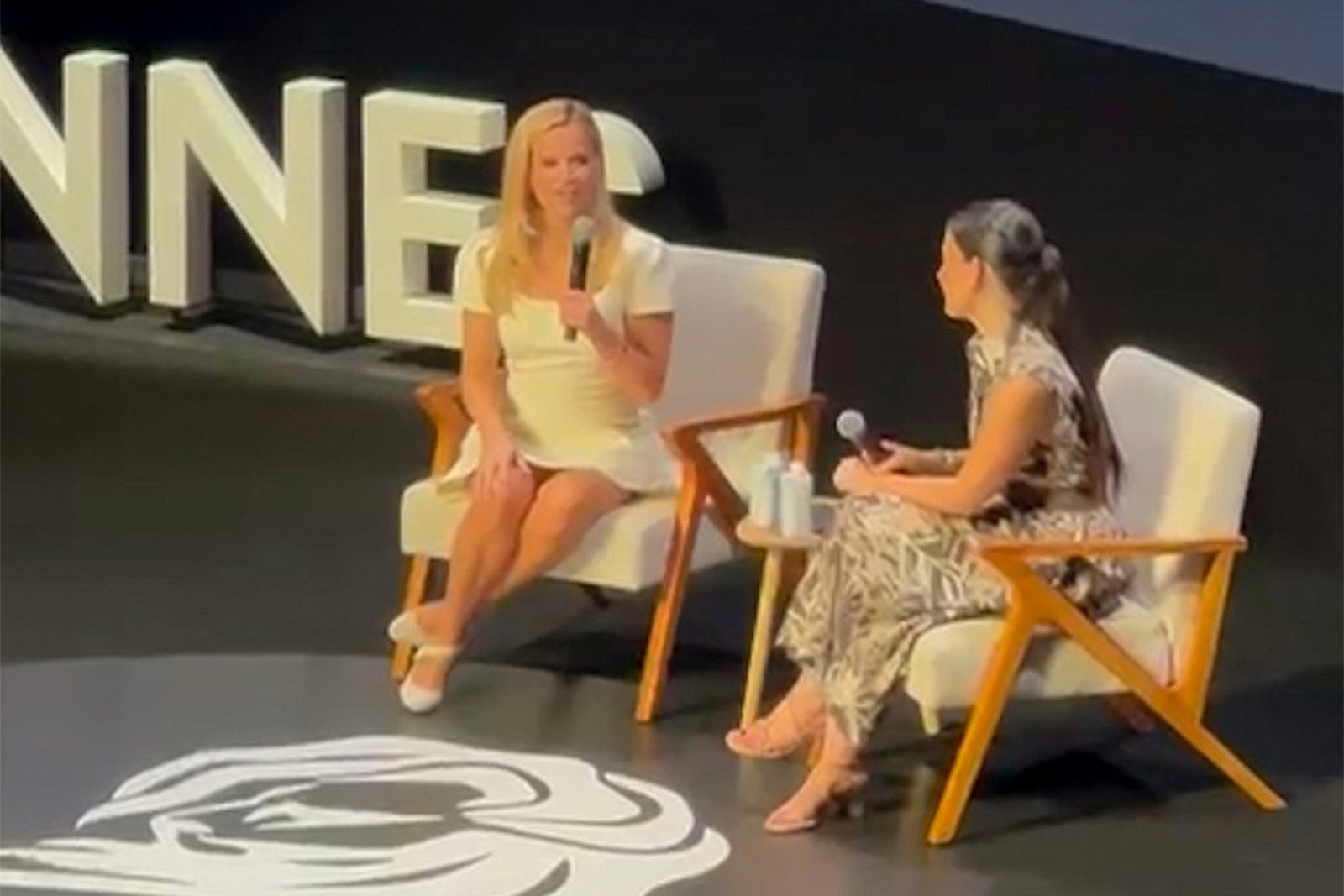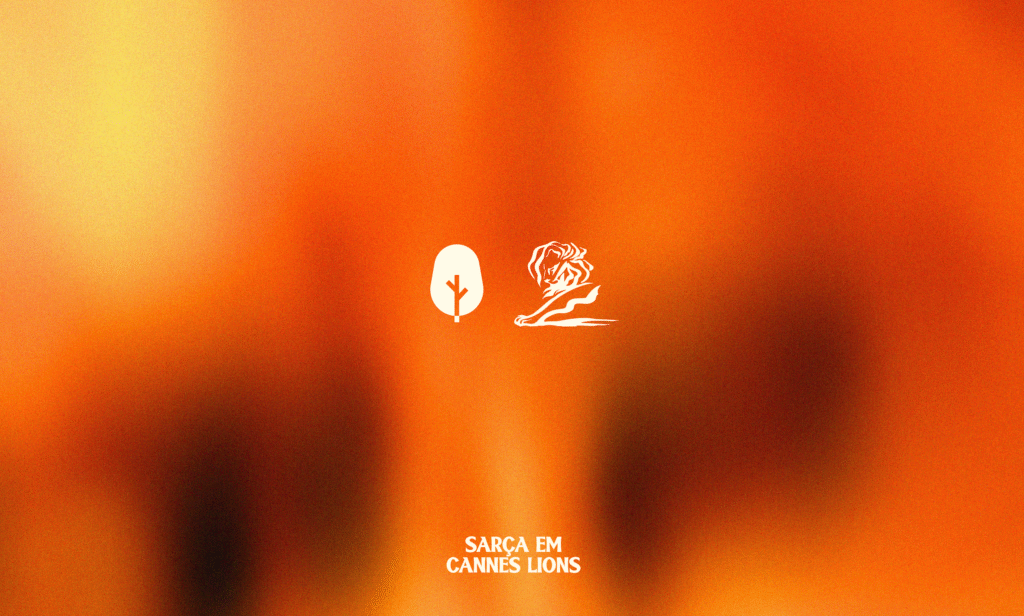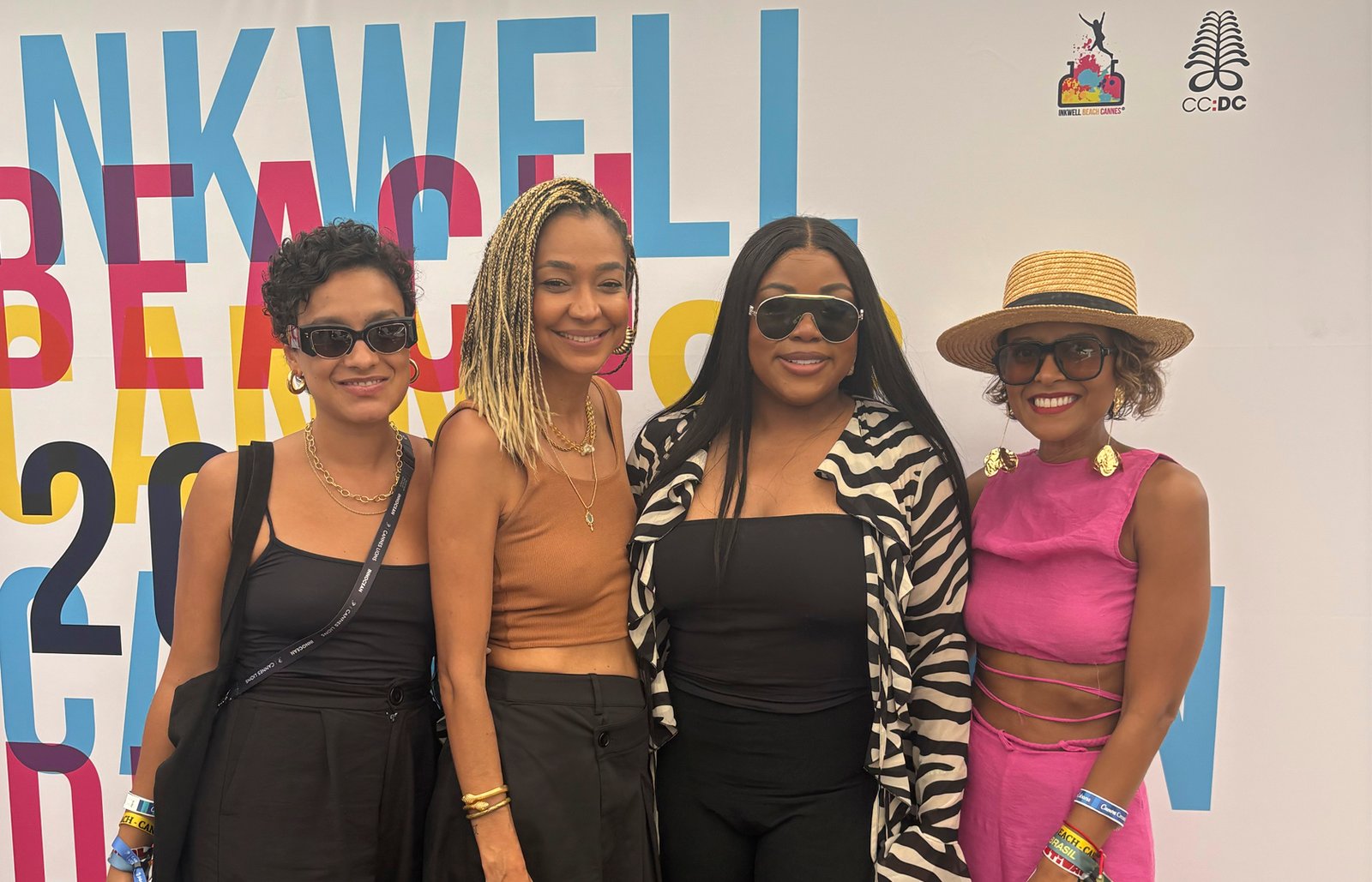It was supposed to be just another successful case presentation, but it became a public confession, a repressed cry, and, above all, a proposal for reinvention.
Felipe Simi didn’t come to Cannes just to celebrate creativity. He came to confront what the industry claims to be, but rarely puts into practice. He began by talking about his childhood, dancing to Madonna before he even knew that “being different” was a problem for others. Before he could understand the color red, the color that would later become a metaphor for everything he was taught to hide.
He shared his frustration with an advertising industry that calls itself diverse, yet took him years as a gay man to even see a Black person next to him, let alone a trans person. A Brazil where 56% of the population is Black, but where agencies look like a different country.
That’s where SOKO was born. Out of anger. Out of a desire for revenge. But also with a clear intention: to prove that it’s possible to build a more creative agency because it’s more diverse. That collaboration can be a methodology, and representation can be a real creative engine.
At SOKO, everyone is creative. Titles don’t matter. With each briefing, everyone is invited to bring “three things” that could solve the problem. And from these plural life experiences come the campaigns that move people and win awards.
Simi doesn’t want an industry where you only rise by fitting in. He wants one where creativity, by definition, is a deviation. A deviation from the obvious, the expected, the permitted. And it’s through that deviation that he built not just an agency, but a living manifesto.


